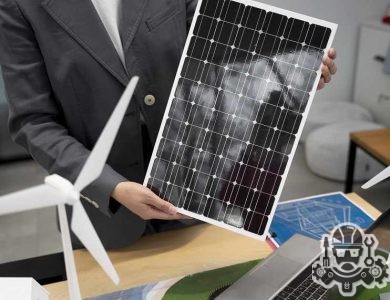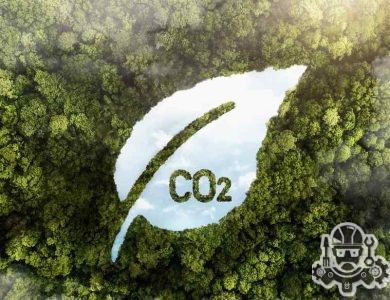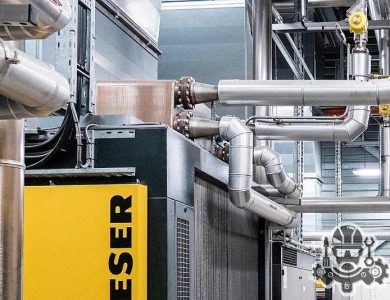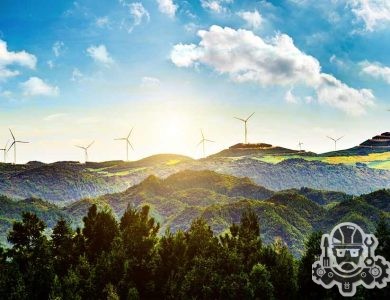Advantages and Disadvantages of Nuclear Energy
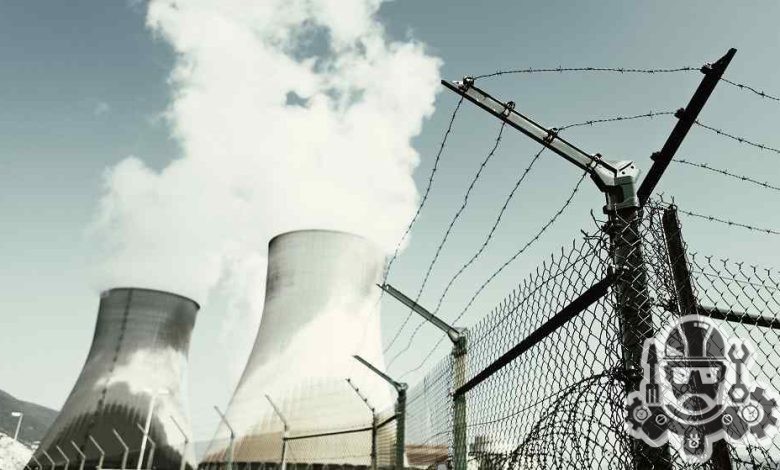
Nuclear energy is a form of energy that is generated through the process of nuclear reactions. It is harnessed by either splitting atomic nuclei (nuclear fission) or combining them (nuclear fusion). The primary source of nuclear energy is uranium, a naturally occurring element that is abundant in the Earth’s crust.
Nuclear fission, the most common method of nuclear energy production, involves the splitting of heavy atomic nuclei, such as uranium-235 or plutonium-239, into smaller fragments. This process releases a significant amount of energy in the form of heat. The heat is then used to generate steam, which drives turbines connected to electrical generators, producing electricity.
Contents
What is Nuclear Energy?
Nuclear fusion, on the other hand, is a process in which lighter atomic nuclei, such as isotopes of hydrogen (deuterium and tritium), are combined to form a heavier nucleus. This process releases even larger amounts of energy compared to fission. However, achieving controlled nuclear fusion reactions has been challenging, and it is still in the experimental stage for power generation.
Nuclear energy has several advantages. It produces a large amount of electricity with a relatively small amount of fuel, resulting in low greenhouse gas emissions compared to fossil fuels. It offers a stable and continuous power supply, as nuclear power plants can operate for extended periods without interruption. Additionally, nuclear power has a high energy density, meaning a small amount of fuel can generate a significant amount of electricity.

However, nuclear energy also poses certain challenges and concerns. The process of generating nuclear energy produces radioactive waste, which requires careful management and disposal to prevent environmental contamination. Safety is a crucial aspect, as nuclear accidents can have severe consequences. The most notable example is the Chernobyl disaster in 1986 and the Fukushima Daiichi nuclear disaster in 2011. The potential for the proliferation of nuclear weapons and the high cost of building and maintaining nuclear power plants are also factors to consider.
What is The Advantages of Nuclear Energy?
Nuclear energy offers several advantages:
- High Energy Density: Nuclear fuel, such as uranium or plutonium, has an extremely high energy density. This means that a small amount of fuel can produce a significant amount of energy, making nuclear power plants highly efficient in terms of energy production.
- Low Greenhouse Gas Emissions: Nuclear power generation produces minimal greenhouse gas emissions, particularly carbon dioxide (CO2). Unlike fossil fuel power plants, nuclear reactors do not burn fuel, which helps reduce the emission of greenhouse gases that contribute to climate change.
- Continuous Power Generation: Nuclear power plants can provide a stable and continuous power supply. They are designed to operate for long periods without interruption, thus ensuring a reliable source of electricity.
- Base Load Power: Nuclear energy can serve as a base load power source, meaning it can supply a constant amount of electricity to meet the minimum demand. This makes it suitable for meeting the essential energy needs of a region consistently.
- Fuel Availability: Uranium, the primary fuel used in nuclear reactors, is relatively abundant in the Earth’s crust. With proper management and advanced reactor designs, the available uranium resources can provide a long-term supply of fuel for nuclear power generation.
- Energy Security: Nuclear power reduces dependence on imported fossil fuels, enhancing energy security for countries that lack significant domestic energy resources. It provides a stable and self-sustaining source of energy, reducing vulnerability to fuel price fluctuations and supply disruptions.
- Improved Safety: Lessons learned from past accidents, such as Chernobyl and Fukushima, have led to enhanced safety measures and designs in modern nuclear reactors. Advanced safety features and rigorous regulations aim to minimize the risks associated with nuclear energy.
It’s important to note that while these advantages exist, nuclear energy also presents challenges and concerns, such as radioactive waste management, potential accidents, and proliferation risks. Careful consideration of these factors is necessary when evaluating the overall impact of nuclear energy.
What is The Disadvantages of Nuclear Energy?
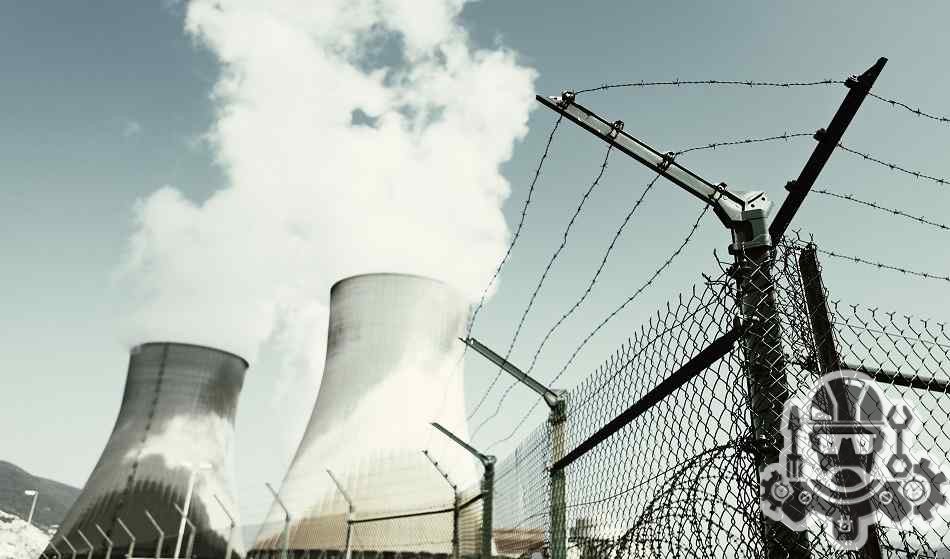
Nuclear energy has several disadvantages and concerns associated with its use:
- Radioactive Waste: Nuclear power generation produces radioactive waste, which remains hazardous for thousands of years. Proper disposal and management of this waste pose challenges to ensure long-term safety and prevent environmental contamination.
- Risk of Accidents: While modern nuclear power plants incorporate extensive safety measures, the risk of accidents still exists. Major accidents like Chernobyl and Fukushima have demonstrated the potential for catastrophic events, releasing radioactive materials into the environment and causing long-term consequences for human health and the environment.
- High Initial Costs: Building nuclear power plants is expensive, requiring significant upfront investment. The costs include construction, maintenance, and decommissioning of plants, as well as managing radioactive waste. These high costs can make nuclear energy less economically viable compared to other energy sources.
- Long Construction Time: Nuclear power plants often require a long time to construct, with complex regulatory processes and safety considerations. Delays in construction can further increase costs and postpone the benefits of nuclear energy.
- Limited Fuel Supply: While uranium is relatively abundant, the supply is not limitless. The accessibility and cost of uranium extraction can also be influenced by geopolitical factors. Additionally, the future availability of fuel for nuclear fusion, such as tritium, may present challenges.
- Proliferation Concerns: The use of nuclear technology for energy production can also raise concerns about the proliferation of nuclear weapons. The same technology and materials used for peaceful purposes can potentially be misused to develop nuclear weapons.
- Perception and Public Acceptance: Nuclear energy carries a perception of risk and fear among some segments of the public due to accidents and the association with nuclear weapons. Public acceptance and trust in nuclear power can impact its future development and deployment.
It’s important to consider these disadvantages and address them through robust safety measures, waste management strategies, advanced reactor designs, and continuous research and development in the nuclear energy sector.
Nuclear energy is a form of energy that is generated through the process of nuclear reactions. It is harnessed by either splitting atomic nuclei (nuclear fission) or combining them (nuclear fusion). The primary source of nuclear energy is uranium, a naturally occurring element that is abundant in the Earth's crust.
Nuclear energy offers several advantages:
High Energy Density
Low Greenhouse Gas Emissions
Continuous Power Generation
Base Load Power
Fuel Availability
Energy Security
Improved Safety
Nuclear energy has several disadvantages and concerns associated with its use:
Radioactive Waste
Risk of Accidents
High Initial Costs
Long Construction Time
Limited Fuel Supply
Proliferation Concerns
Perception and Public Acceptance
